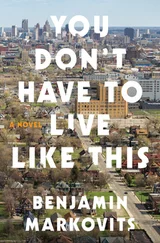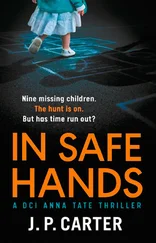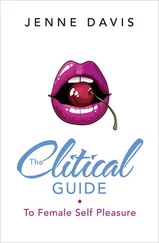When she pushed the door open, I shut my eyes.
There was silence for a few seconds before she padded into the room in socks, over to the bed so that I could feel her shadow resting on my skin, then to the window for a moment, then to the dresser where I had left sloppy entrails of color lying there for her to see, and interpret, and do something about. I listened for her voice but heard nothing. Then a few soft footfalls and I felt her again, over me and sinking down, bringing her eyes to the level of my own, releasing soft, stale breaths that stirred little strands of my hair. In the ebb and stutter of her breath, I could hear that she wasn’t angry with me, wasn’t struggling to hold back any surge of emotion. She was studying me the way we used to study the insects together, the miniature dramas of ants and bees. She’d be searching my features for any residue of tightness, for the tiny strain of muscles holding a face in shape, for traces of fakery.
The body is divided into voluntary and involuntary muscles, ones that you use and ones that essentially use you, make you throb internally and drive your life forward in a series of small movements that you couldn’t stop if you wanted to. The ball of my eye trembled beneath its lid as I tried to concentrate on the muscles that would hold it still. The situation inched forward despite myself.
I could feel my eyelid begin to twitch.
My eyes spasmed open onto B’s face, pale and so close to my own that her features were clear, exacted. Her sharp lines cut through my blurry vision.
“Were you having a bad dream?” B asked.
“I was just sleeping,” I said. It was terrifying how gently she had spoken to me.
“You looked like you were having a bad dream,” she replied. “I didn’t know people slept like that, frowning and twitching. I thought you’d sleep more beautifully.”
I didn’t know how early it was, but she was already made up, her big eyes rimmed with black stuff that clumped to her lashes. I realized now that it had been stupid to think that destroying her makeup could do anything to separate us: she would only make me go to the store to buy all of it again. There was no way to wreck her without wrecking myself. Maybe there was no way to definitively wreck anything anymore. No firm cores left to target, only an endless springy meshwork replenished by phantom hands. I squeezed my eyes shut. This was what I had been striking out against all this time, an endless repetition of faces, when all along I should have been seeking and striking the hands behind them.
“Are you angry?” I asked B, who was still crouched down, a tight ball of a person.
“Why would I be angry?” B asked me.
It felt like a trap.
“Because I destroyed your things,” I said.
She held still, and when she spoke she spoke with tenderness.
“It doesn’t matter,” she said coolly. “I can always use yours instead.”
She leaned forward, continuing: “What matters is that you broke this stuff because of me. I made someone do something they wouldn’t have done on their own. You did all this for me.”
She paused as though she were listening for the first time to what she had just said. Then she nodded, reaching out to grab my wrist.
“You really care,” she said.
I looked at her big, black-rimmed eyes. They had a moist, invertebrate vulnerability to them, their wet centers exposed. They opened and shut, surrounded by a twitching of hairs like thin legs, dark encrusted. Here was a person who should have been familiar to me, whose hand wrapped around my wrist should have prompted a deepening sense of recognition, thoughts of our past together, feelings. Instead, I was having trouble seeing her as anything more than a compilation of parts, each of which seemed strange and new and known at the same time. They were perfect prosthetics, modeled on her own original hands and face but with no investment in the person they were meant to imitate. I could destroy her with as little feeling as it took to tear up a photograph. I pulled my body upright in her bed.
“I’m late for work,” I said, and I stood, pushed past her narrow body and into the hall, out the door, into the world outside.
THAT DAY AT THE OFFICE,I worked from the desk of my choice rather than the usual freelancer’s cubicle. The desk I chose was farther from the air conditioner, closer to the window. From it you could swivel your seat and look out at a tree that was in the process of dying, its lower boughs bare in every season. The cubicle was mine today because almost everybody who worked here was out sick: one with the flu, another with tonsillitis, three others with some kind of stomach bug. It gave me the feeling that there was something wrong out there, something that was many different things. My direct manager had something called pelliculitis. Instead of giving me the day off, he was managing me via a series of Post-it notes I found stuck up throughout the office. The Post-its told me that the first thing I should do today was proofread next month’s issue of New Age Plastics . There was an article in it that was in pretty bad shape. The second thing was to proof this week’s Fantastic Pets, double-checking its pagination. Then, if I had time, organize the supply cabinet. When I went to the break room to get a cup of coffee, I found a Post-it on the coffee machine that read:
HEY, WOULD YOU MIND GRABBING ME A CUP OF COFFEE? HA HA! JUST KIDDING! OUT SICK WITH PELLICULITIS. — STEPHEN
New Age Plastics was a magazine devoted to the spiritual uses and properties of different kinds of plastic. Next month’s issue was titled “The Healing Properties of Polystyrene” and featured interviews with an artist who made naturopathic jewelry from old Styrofoam takeout containers and an entrepreneur in Nevada who sold home-brew polystyrene tea that he claimed cured arthritis, imbuing the drinker’s joints with all the fantastic resilience of this light, durable plastic. The pages were riddled with errors, per usual — the New Agers wrote in unraveling run-on sentences without punctuation, or they punctuated only with exclamation points. But my boss was right, this article was particularly bad. I couldn’t even tell what it was about through the maze of vagary and repetition. One sentence in particular seemed important: The duo meanings of plastic are as one, bendable/changeable on the one hand and destructive on the other. This sentence appeared over and over, and when I crossed out a duplicate I’d inevitably grow uncertain of my decision, writing STET in the margin beside it, only to cross that out again a few moments later, and again, and again, etc.
The problem, I had to admit to myself, was not necessarily the article. As I tried to perfect the pose of someone just like me hunched over a desk proofreading, I was aware that it was hard to keep reading over the sound of the thoughts in my head. It was as if my thoughts were on channel seek: B’s tender face. C’s confused one. A full Sunday dinner obscured beneath white sheets. Covered in dead ants. Smeared with blue glitter and gelatinous pink. A round, luscious Kandy Kake, hazily remembered. I was salivating strangely, as if my tongue leaked. I thought I might be coming down sick, too. And even as I thought this, I knew it was not the normal kind of sick, where the body rebels against the foreign element within it. The foreign element was not yet inside me: there was still time to do something, though I didn’t know what. It was enough to make me cry.
I texted C: Crazy night with B. She’s losing it for real. Call me?
When I left the office at four thirty, C still hadn’t replied.
I walked back home a new way that day, a way that lacked sidewalk but promised to keep me safe from B in case she was staking out my normal route, which snaked past all the gas stations and my two favorite Wally’s Supermarkets. The new way followed the highway. I walked in the ditch when the cars came, breathing in their after-smell of nail polish or nail polish remover, scratching my shins on rough blades of gutter grass. It took longer, too, this way — but the difficulty was worth it. I could be alone with my thoughts, even if all my thoughts right now consisted of panicky, uncontrollable images of things I wanted or feared. Out here by myself, I could try to devise a plan.
Читать дальше




![Ally Carter - [Gallagher Girls 01] I'd Tell You I Love You But Then I'd Have to Kill You](/books/262179/ally-carter-gallagher-girls-01-i-d-tell-you-i-lo-thumb.webp)







